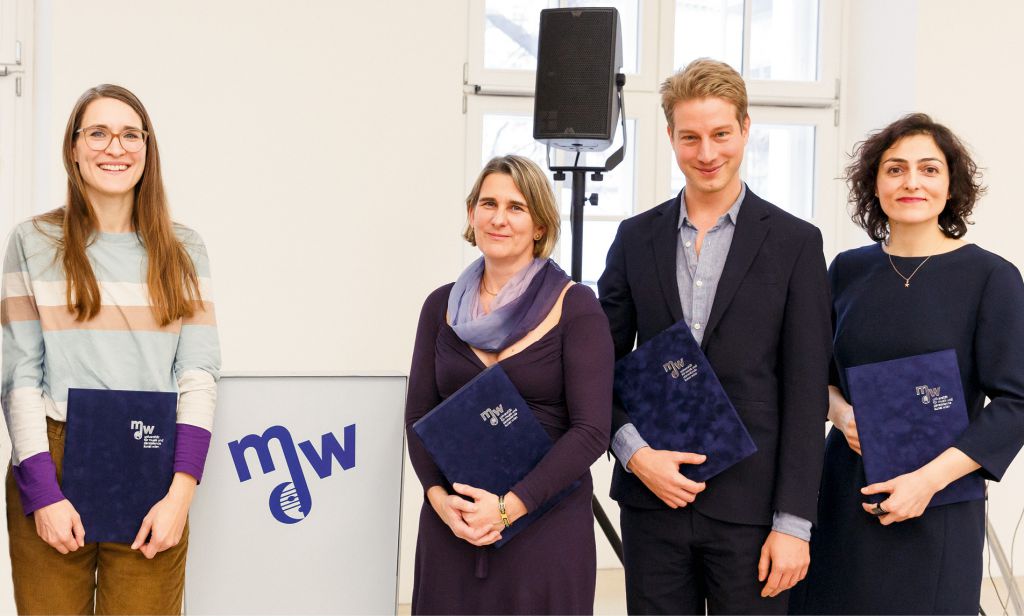An Award to Recognise Outstanding Dissertations at the mdw
On 16 December 2019, mdw Rector Ulrike Sych honoured the winners of the first-ever “Herta and Kurt Blaukopf Award for Outstanding Dissertations at the mdw”. The mdw has instituted this award as a way of underlining the priority it accords to scholarly excellence.

The four Herta and Kurt Blaukopf Award winners in 2019 were Marko Kölbl (Ethnomusicology), Katharina Pecher-Havers (Musicology), Anke Schad (Cultural Institutions Studies), and Nejla Melike Atalay (Musicology). Each individual award is worth EUR 2,000. Kölbl, whose dissertation is entitled Burgenlandkroatische und kroatische Totenklagen [Burgenland Croatian and Croatian Laments], visited villages in Burgenland, Croatia, and Herzegovina to research how women react to the deaths of people they love using the musical form of the lament. In this work, he integrated research on minorities, anthropological theories concerning death, and performative research on gender. A focus on music history can be seen in Pecher-Havers’ Der Salon des Proletariats – Die Narrative der Zitherkultur und ihre Erzählräume [Salon of the Proletariat – The Narratives of Zither Culture and their Spaces of Narration], which focusses on the zither as a cultural and historical phenomenon in order to show how a musical practice was narratively enhanced in an attempt to connect with supposed educational elites. Anke Schad, in her dissertation Doing Politics – Making Democracy? Cultural Governance in der kommunalen Kulturpolitik […Cultural Governance at the Local Government Level in Austria], took on the analysis of participatory processes and in particular the question of why joint strategic development efforts by cultural organisations and the responsible politicians and public administrators is so challenging, especially when it comes to cultural financing. And finally, the fourth award recognised a work of special sociopolitical relevance: Melike Atalay’s dissertation Women Composers’ Creative Conditions Before and During the Turkish Republic deals with Turkish women who became composers and did not give up on music despite the unfavourable conditions under which they had to work.
The festive awards ceremony was held in the mdw’s Banquet Hall with the Blaukopf family in attendance and framed by an atmospheric musical programme. Johanna Wallroth sang Das himmlische Leben from Gustav Mahler’s Fourth Symphony, a selection that was anything but coincidental: Herta Singer-Blaukopf has made important contributions to research on Mahler, including as an editor of Mahler’s correspondence. Kurt Blaukopf, for his part, is viewed as the founder of Viennese music sociology. This couple shares not only a passion for music but also the experience of forced exile in 1938 due to National Socialism, as Rosa Reitsamer—a professor of music sociology at the mdw—informed those present as part of her talk on the research done by Herta and Kurt Blaukopf. The afternoon’s programme was rounded out with an artistic contribution by composer Katharina Klement.
The Herta and Kurt Blaukopf Award was initiated by the mdw’s Office of Research Promotion and serves to make visible special achievements within the University’s scholarly doctoral studies programmes as well as provide early-stage researchers with support for their further academic careers. It is to be awarded every two years by a transdisciplinary jury (chaired by the Dean of Research Programmes) on the basis of external evaluations.
Next call for entries: early 2021

